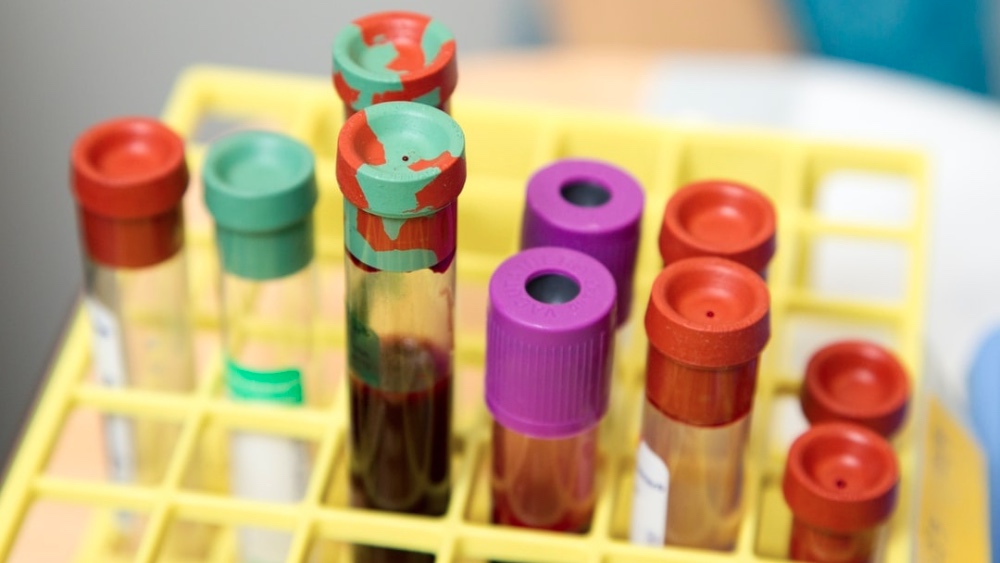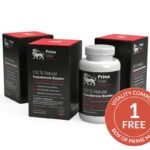First of all, I would like to begin this article by stating that B12 aside, if you eat a 100% whole food balanced plant-based diet, you are more than likely getting far more micronutrients (vitamins & minerals) than you were on your previous animal-based diet. And on top of that, a whole food plant-based diet offers you a clean source of amino acids, carbohydrates, and fats, compared with animal and processed foods. Despite the apparent advantages of adopting a plant-based diet, I still think getting a baseline blood test before you transition is beneficial for a few reasons:
- It allows you to see if you have any areas of deficiency that you need to focus on and build your plant-based diet and possibly supplementation around (i.e., if you are low in Iodine then working to include more sea vegetables in your diet or iodized salt, will be important)
- It allows you to see your current blood lipid profile (cholesterol and triglycerides), which will significantly improve for most people who move to a low-fat whole foods plant-based diet. Getting your lipid profile right is crucial to prevent your chance of having a cardiovascular event (heart attack or stroke).
- It allows you to see your progress when you perform a retest at 6/12 months, giving you confidence that your decision to eliminate animal products has been a good one, not only for the planet and the animals but also for your health. I find this makes people less likely to go back to eating animal products.
WHAT TO TEST FOR? (IT’S ADVISABLE TO PRINT THIS OUT AND DISCUSS WITH YOUR DOCTOR)
- Standard full blood count/examination – This is a very standard test that all GP’s include when doing blood work to give insight into the white & red blood cell count and particularly whether the patient has any signs of anemia or infection.
- Vitamin D – if you live in areas of the world where there is minimal sunlight and get less than 20-30 minutes of sun exposure on your face & hands per day, you should ask your Doctor to have this added to your blood test. It’s advisable if you know you are not getting sunlight for certain months or the entire year to add a Vitamin D supplement to your daily regime.
- Iron – For a complete picture of your Iron stores and saturation, ask your Doctor to test:
- B12 – As discussed previously, this is a supplement everyone on a Plant-Based diet should be taking. With regards to your blood test, for a complete picture of your active B12, ask your Dr to test:
- Serum B12 (on its own, not always an accurate test for B12 as it can include inactive analogs of B12). If they can perform a TOTAL & ACTIVE (Holo-TC) Serum B12, that would be preferable.
- Methylmalonic Acid (MMA) (can be elevated with B12 deficiency). Unfortunately, this is often not covered by local government healthcare, so you may have to pay for this yourself if you want it.
- Homocysteine (can be elevated with B12 deficiency) Unfortunately, same as MMA, this is often not covered by local government healthcare, so you may have to pay for this yourself if you want it. If homocysteine is elevated, but MMA is not, then it is more likely a Folate deficiency or a problem metabolizing Folate properly, not a B12 deficiency.
- Blood Lipids
- Total Cholesterol
- Cholesterol Ratio
- HDL
- LDL
- Triglycerides
- Omega 3 Index Test – Looks at the amount of long-chain Omega 3’s (DHA/EPA) in the membrane of red blood cells. As this one is often not funded by local healthcare, it’s probably only necessary if you are not eating any plant-based Omega 3 rich foods or taking an Age oil supplement. I test mine periodically (not every test) and pay the fee to do so, just to make sure I’m still sufficiently absorbing and utilizing the plant-based Omega 3’s in my diet.
Please note your Doctor may also recommend you test for other specific health markers like testosterone, T3/T4 hormones, albumin/globulin, or others if you have a certain illness or have symptoms that warrant such tests. What I have listed are just the high-level health markers for an otherwise healthy person to check when transitioning to a plant-based diet.
WHAT ABOUT IODINE?
If you do not have Iodised salt, dulse, wakame, nori, kelp (or another iodine-rich sea vegetable), or an Iodine supplement, etc., then I would recommend performing a Urinary Iodine test.
WHAT TO DO IF MY RESULTS SHOW A DEFICIENCY OR EXCESS OF SOMETHING?
When you get your blood test results, each specific test will come with a healthy range/population norm to which your result is compared. This tells you if your results are considered ‘normal’ or not. If you find something abnormal with your test results, usually it is easily corrected by looking at the foods you are consuming or adding a supplement to your daily/weekly regime, which is something you should work through under the guidance of your Doctor, Nutritionist, or Dietician. Of course, I have many blogs on this website that go through various nutrients and where to best find them in your diet, such as iron, B12, and Omega 3’s.
It’s very important to note that typically when transitioning to a 100% plant-based whole food diet, your Total cholesterol, LDL cholesterol (“bad cholesterol”), and triglycerides will drop considerably. Globally it’s recommended total cholesterol is below 220mg/DL to avoid cardiovascular events; however, in reality, the science shows that cholesterol sub 150mg/DL is actually preferable to avoid cardiovascular events.
SOME FINAL POINTS TO CONSIDER WHEN IT COMES TO GETTING ACCURATE BLOG TEST RESULTS
- If you are doing a blood test that includes your lipid profile, you should ideally be fasting for at least 12 hours. So this means if you have your last meal at 8 pm, you can perform the blood test the following morning after 8 am. If you cannot get an appointment until, say, 10 am or midday, it doesn’t matter, but you want to stay in the fasted state, which means do not consume anything with calories or it will throw off your results (so only water!).
- Try and perform your comparison tests under the same conditions. So if your first blood test is at, say, 9 am in a fasted state, and on a day where you haven’t trained at the gym or done exercise, etc., then you wouldn’t perform your follow up test result on six months or a year down the track in a non fasted state or immediately after an intense workout. You need to eliminate as many variables as possible which can affect the blood test results. So it’s important to remember the conditions of your blood test. To avoid confusion, I always do my first thing on rising (after a good night’s rest) in a fasted state, and I do not work out before them.
HOW OFTEN DO WE NEED A BLOOD TEST?
This really depends on your own personal circumstance. If you are otherwise healthy and not undergoing any form of treatment for a specific illness, then I usually recommend a blood test before you transition to a plant-based diet if possible (to see your baseline) and then one at six months, 12 months, and then yearly thereafter. After a couple of years with no abnormal results, you may then move to a 24 months test. I certainly recommend ongoing tests, but as you are growing more and more confident with your transition and seeing great results, you can, of course, space these tests out.
THIS SEEMS A BIT TOO HARD AND IS QUITE COMPLICATED?
Ask yourself how much time you’ve dedicated to setting up a piece of IKEA furniture, lifting weights, watching the Kardashians, adding some new mechanical piece or function to your car, etc. Your greatest asset is your health, and in my view, too many of us float through life with very little regard for the precious vessel that allows everything we experience in our physical life to be possible. Without your health, chances are you cannot experience everything you love to do on a daily basis. I hope that puts things in perspective – I know it does for me.





